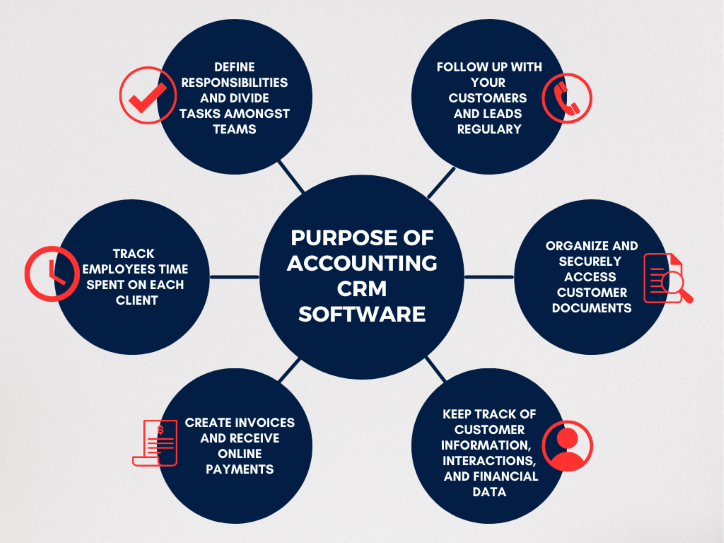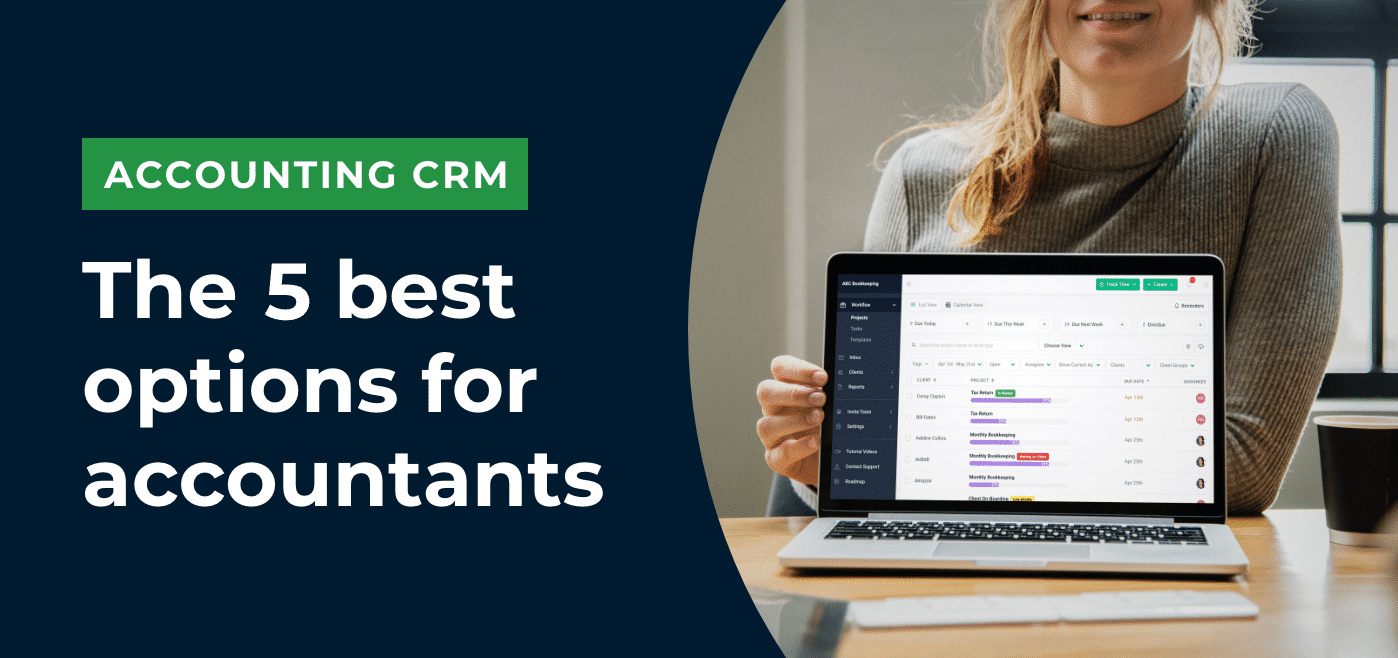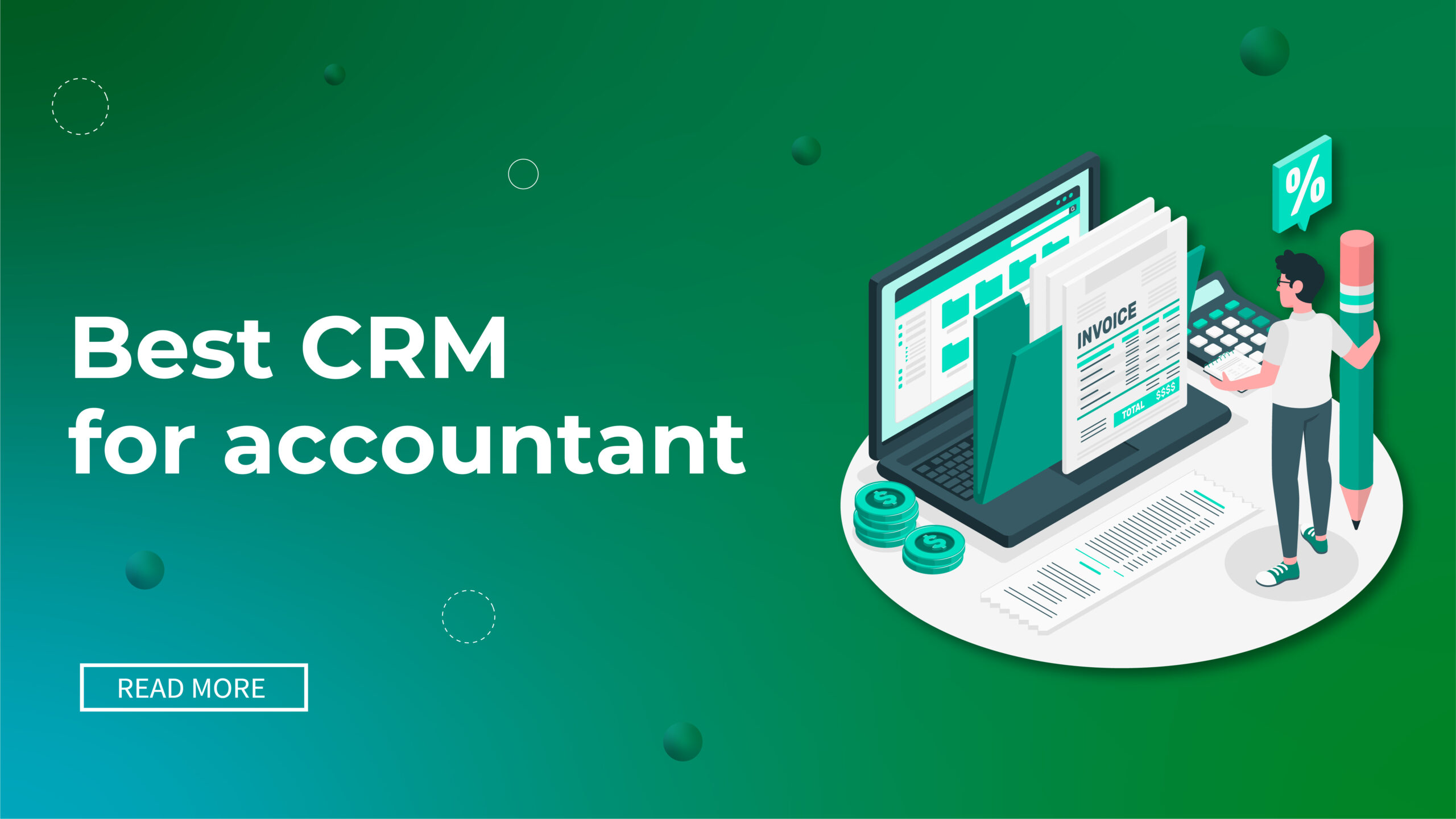Discover the transformative power of CRM for accounting firms! Embark on a journey to optimize client management, streamline operations, and elevate your business to new heights. Delve into the intricacies of CRM, its significance for accounting professionals, and the unique challenges and opportunities it presents.
Prepare to uncover the essential features of an effective CRM, exploring how they can revolutionize your workflow, enhance communication, and foster lasting client relationships. Witness the tangible benefits of implementing a CRM, supported by compelling case studies and real-world examples.
Understanding CRM for Accounting Firms

Customer Relationship Management (CRM) is a crucial aspect for accounting firms seeking to enhance client satisfaction, drive growth, and streamline operations. By leveraging a CRM system, accounting firms can centralize client data, track interactions, and gain valuable insights into client needs and preferences.
Accounting firms face unique challenges in managing client relationships. The highly regulated nature of the industry demands strict compliance with ethical and professional standards. Additionally, accounting firms often juggle multiple client engagements simultaneously, making it essential to prioritize tasks and allocate resources effectively.
Benefits of CRM for Accounting Firms
- Improved Client Communication:CRM systems facilitate seamless communication with clients through multiple channels, including email, phone, and instant messaging.
- Enhanced Client Management:CRM tools provide a centralized platform to track client interactions, preferences, and billing information, enabling accounting firms to deliver personalized services.
- Increased Efficiency:By automating tasks such as appointment scheduling, document management, and follow-ups, CRM systems streamline workflows and free up accountants’ time for value-added activities.
- Improved Collaboration:CRM systems foster collaboration among accounting teams, allowing them to share client information, updates, and insights, ensuring a cohesive approach to client service.
- Data-Driven Decision Making:CRM systems collect and analyze client data, providing accounting firms with valuable insights into client behavior, preferences, and areas for improvement.
Key Features of a CRM for Accounting Firms

An effective CRM for accounting firms should include a comprehensive suite of features that streamline operations, improve communication, and enhance client satisfaction. Here are some essential features to consider:
Client Management
Robust client management capabilities are crucial for organizing and tracking client information. Features such as centralized contact profiles, activity history, and customizable pipelines allow accounting firms to efficiently manage client relationships and stay organized.
Communication and Collaboration
Effective communication is essential for accounting firms. A CRM with built-in communication tools, such as email integration, messaging, and video conferencing, facilitates seamless communication within the team and with clients.
Task and Project Management
Task and project management features enable accounting firms to assign and track tasks, set deadlines, and monitor progress. This helps ensure timely completion of tasks and efficient collaboration.
Document Management
Centralized document management is essential for storing and organizing client-related documents. A CRM with document management capabilities allows accounting firms to securely store and retrieve documents, ensuring easy access and collaboration.
Reporting and Analytics, Crm for accounting firm
Robust reporting and analytics capabilities provide insights into key metrics such as client acquisition, engagement, and revenue. This data helps accounting firms make informed decisions and improve their operations.
Integration with Accounting Software
Integration with accounting software is crucial for seamless data flow. A CRM that integrates with accounting software eliminates the need for manual data entry, reduces errors, and improves efficiency.
Benefits of Implementing a CRM
Implementing a CRM system can bring numerous benefits to accounting firms, leading to improved efficiency, enhanced client relationships, and increased profitability.
Studies have shown that firms that implement CRM systems experience significant improvements in:
- Lead generation and conversion rates
- Client satisfaction and retention
- Operational efficiency and productivity
Case Study: ABC Accounting Firm
ABC Accounting Firm implemented a CRM system and saw a 20% increase in lead generation within the first six months. The system’s automated lead nurturing capabilities allowed the firm to identify and engage with potential clients more effectively, resulting in a higher conversion rate.
Selecting and Implementing a CRM: Crm For Accounting Firm

Selecting and implementing a CRM system for an accounting firm requires careful consideration of several key factors. These include the firm’s size, industry focus, specific business needs, budget, and technical capabilities. It’s essential to evaluate different CRM solutions and choose one that aligns with the firm’s unique requirements.
Steps Involved in Implementing a CRM
Once a CRM system is selected, the implementation process typically involves several steps:
- Data Migration:Transferring existing client data from the old system to the new CRM.
- Training:Providing comprehensive training to staff on how to use the CRM effectively.
- Customization:Tailoring the CRM to meet the specific needs of the accounting firm.
- Integration:Connecting the CRM with other business systems, such as accounting software.
- Ongoing Support:Ensuring that the CRM system is maintained and updated regularly, and that users have access to support when needed.
By following these steps, accounting firms can successfully implement a CRM system that optimizes their client relationships and drives business growth.
Best Practices for Using a CRM
To effectively utilize a CRM system in an accounting firm, best practices should be implemented. These include data management, relationship building, and leveraging analytics to drive growth.
Data Management
- Centralize client data:Consolidate all client information into a single, accessible platform.
- Maintain accurate and up-to-date records:Ensure data accuracy by regularly reviewing and updating client profiles.
- Segment clients based on specific criteria:Group clients into categories based on industry, size, or service needs to tailor marketing and outreach efforts.
Relationship Building
- Personalize interactions:Use CRM data to understand client preferences and tailor communications accordingly.
- Track client interactions:Record all interactions with clients, including phone calls, emails, and meetings, to build a comprehensive history.
- Nurture relationships through regular communication:Send personalized emails, newsletters, or invitations to events to maintain engagement and foster relationships.
Leveraging Analytics
- Track key performance indicators (KPIs):Monitor metrics such as client acquisition cost, client retention rate, and revenue generated to measure the effectiveness of CRM efforts.
- Identify trends and patterns:Analyze CRM data to identify trends in client behavior, preferences, and service needs.
- Make data-driven decisions:Use insights gained from CRM analytics to inform strategic decisions and improve business outcomes.
Future Trends in CRM for Accounting Firms
The future of CRM for accounting firms is bright, with emerging trends and technologies poised to revolutionize the way firms manage client relationships and drive growth.
Artificial intelligence (AI), automation, and data analytics are at the forefront of these advancements, promising to streamline operations, enhance decision-making, and deliver personalized client experiences.
AI-Powered CRM
- AI-powered chatbots provide 24/7 support, automating routine tasks and freeing up accountants for more complex work.
- Machine learning algorithms analyze client data to identify patterns and trends, enabling firms to tailor services and anticipate client needs.
- AI-driven insights help accountants make informed decisions, improve risk management, and identify opportunities for growth.
Automation for Efficiency
- Automated workflows streamline repetitive tasks, such as data entry, invoicing, and appointment scheduling.
- Robotic process automation (RPA) bots can handle high-volume, rule-based tasks, freeing up accountants for more strategic initiatives.
- Automated reporting and analytics provide real-time insights into firm performance and client behavior.
Data Analytics for Insights
- Data analytics tools collect and analyze vast amounts of client data, providing a comprehensive view of their needs and preferences.
- Advanced analytics techniques uncover hidden patterns and correlations, enabling firms to segment clients and target marketing efforts effectively.
- Predictive analytics help accountants forecast future trends and identify potential risks, allowing them to proactively address client concerns.
Last Point

Harness the power of CRM to transform your accounting firm into a thriving hub of efficiency and client satisfaction. Embrace best practices, leverage analytics, and stay abreast of emerging trends to drive growth and solidify your position as an industry leader.
The future of CRM for accounting firms holds endless possibilities – embrace them and unlock the full potential of your practice.
Popular Questions
What is the primary benefit of implementing a CRM for accounting firms?
Streamlining operations, enhancing communication, and improving client satisfaction.
How can a CRM help accounting firms manage client relationships effectively?
By centralizing client data, tracking interactions, and providing tools for personalized communication.
What are the key features to look for in a CRM for accounting firms?
Contact management, task automation, document sharing, reporting, and integration with accounting software.